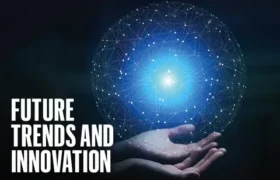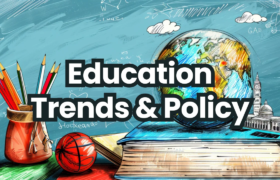In the 21st century, the landscape of success has dramatically shifted. No longer is success solely tied to material wealth or physical assets. Today, knowledge has emerged as the most valuable currency, driving individual growth, organizational excellence, and societal progress. This intangible asset transcends borders, empowers innovation, and provides a competitive edge in a rapidly evolving world.
In this article, we’ll explore why knowledge is the new currency of success, how it shapes careers and businesses, and ways to harness it effectively.
The Knowledge Economy: A Paradigm Shift
The transition to a knowledge-based economy has redefined the foundations of success. In traditional economies, tangible resources like land, labor, and capital were paramount. However, in today’s digital and interconnected world, intellectual capital—embodied in ideas, skills, and information—has become the driving force.
Key Factors Behind the Rise of Knowledge as Currency:
- Globalization: As global markets expand, access to knowledge enables individuals and organizations to navigate diverse cultural and economic landscapes.
- Digital Transformation: The explosion of data and digital tools has democratized access to information, making knowledge a universal asset.
- Innovation-Driven Markets: Success in modern industries, from technology to healthcare, depends on the ability to innovate, which is fueled by knowledge.
How Knowledge Drives Personal Success
For individuals, knowledge is not just power—it’s currency. It determines career trajectories, enhances decision-making, and fosters personal development.
1. Career Advancement
In the modern job market, technical skills and industry-specific knowledge are critical. Employers prioritize candidates who demonstrate expertise and adaptability.
- Specialized Skills: Professionals with niche knowledge in areas like AI, cybersecurity, or renewable energy are in high demand.
- Lifelong Learning: Continuous education ensures relevance in industries undergoing rapid change.
2. Decision-Making
Knowledge empowers individuals to make informed decisions, whether in their personal lives or professional settings. Understanding trends, analyzing data, and applying critical thinking lead to better outcomes.
3. Personal Growth
Knowledge expands perspectives, improves emotional intelligence, and fosters creativity. It enables individuals to set and achieve meaningful goals.
Knowledge as a Catalyst for Business Success
For organizations, knowledge is the lifeblood of innovation, productivity, and competitive advantage.
1. Innovation and Problem-Solving
In business, innovation stems from applying knowledge creatively to solve problems or seize opportunities. Companies like Tesla, Google, and Amazon thrive because they leverage knowledge to disrupt industries.
2. Knowledge Sharing and Collaboration
A knowledge-driven culture enhances collaboration within teams and across organizations. When employees share insights and expertise, productivity and innovation flourish.
- Knowledge Management Systems: Tools like intranets and cloud platforms facilitate the collection and sharing of organizational knowledge.
- Cross-Functional Teams: Diverse teams bring varied knowledge and perspectives, driving innovative solutions.
3. Competitive Advantage
Organizations that invest in employee training, R&D, and data analytics can outpace competitors. Knowledge enables companies to anticipate market trends, optimize operations, and deliver exceptional customer experiences.
The Role of Technology in the Knowledge Economy
Technology has amplified the value of knowledge by providing tools for its creation, storage, and dissemination.
1. Big Data and Analytics
The ability to analyze vast amounts of data has revolutionized industries. Insights derived from data empower businesses to make strategic decisions.
2. Artificial Intelligence (AI)
AI enhances knowledge by processing information faster than humans and identifying patterns that might otherwise go unnoticed.
3. Online Learning Platforms
Platforms like Coursera, Udemy, and LinkedIn Learning democratize access to education, enabling individuals to acquire new skills and knowledge at any time.
Challenges in Harnessing Knowledge
While knowledge is immensely valuable, leveraging it effectively comes with challenges.
1. Information Overload
The digital age has created an abundance of information, making it difficult to filter valuable knowledge from noise.
2. Knowledge Silos
In organizations, isolated knowledge within departments can hinder collaboration and innovation.
3. Unequal Access
Disparities in access to education and resources prevent some individuals and communities from benefiting fully from the knowledge economy.
Strategies to Harness Knowledge for Success
To thrive in a knowledge-driven world, individuals and organizations must adopt strategies to cultivate, utilize, and share knowledge effectively.
1. Commit to Lifelong Learning
The pace of change demands continuous learning. Embrace new technologies, take courses, and stay curious to remain competitive.
2. Build a Knowledge Network
Collaborate with experts, join professional communities, and leverage mentorship to gain diverse perspectives and insights.
3. Leverage Technology
Use tools like knowledge management software, AI, and analytics to access and apply information effectively.
4. Encourage Knowledge Sharing
In organizations, foster a culture where employees are encouraged to share ideas and expertise. Recognize and reward contributions to knowledge exchange.
The Future of Knowledge as Currency
As the world becomes increasingly interconnected and technology-driven, the value of knowledge will only grow. Emerging trends include:
1. Knowledge Personalization
AI and data analytics will enable tailored learning experiences and decision-making support.
2. Knowledge Equity
Efforts to bridge educational gaps will make knowledge more accessible to underrepresented communities, fostering inclusive growth.
3. Ethical Knowledge Practices
As knowledge becomes more valuable, ethical considerations around data privacy, intellectual property, and misinformation will take center stage.
FAQs
1. Why is knowledge considered the new currency?
Knowledge is considered the new currency because it drives innovation, informs decision-making, and provides a competitive edge in today’s digital and globalized economy. Unlike traditional resources, knowledge is limitless and grows when shared.
2. How can individuals stay relevant in a knowledge-driven world?
To stay relevant, individuals should commit to lifelong learning, embrace new technologies, build professional networks, and focus on developing critical thinking and problem-solving skills.
3. What role does technology play in the knowledge economy?
Technology amplifies the value of knowledge by enabling its creation, storage, and dissemination. Tools like AI, big data analytics, and online learning platforms make knowledge more accessible and actionable.
Conclusion
Knowledge is no longer just a tool—it is the currency that defines success in the modern world. From empowering individuals to driving organizational growth and societal progress, knowledge holds the key to innovation, adaptability, and resilience. By investing in learning, fostering collaboration, and embracing technology, we can unlock the full potential of knowledge and shape a brighter, more equitable future.
Related Posts

The Role of Knowledge in Shaping the Future of Innovation
Innovation is the cornerstone of progress in any field—be it…

The Role of Education in Social and Economic Development
Education is one of the most powerful tools for social…

Global Best Practices in Education: Learning from International Models
Global Best Practices in Education In an increasingly interconnected world,…